Subscribe to trusted local news
If you are accessing this story via Facebook but you are a subscriber then you will be unable to access the story. Facebook wants you to stay and read in the app and your login details are not shared with Facebook. If you experience problems with accessing the news but have subscribed, please contact subscriptions@thestrayferret.co.uk. In a time of both misinformation and too much information, quality journalism is more crucial than ever. By subscribing, you can help us get the story right.
- Subscription costs less than £1 a week with an annual plan.
Already a subscriber? Log in here.
15
Jul 2025
What's to blame for the hosepipe ban – the dry weather or the leaky network?
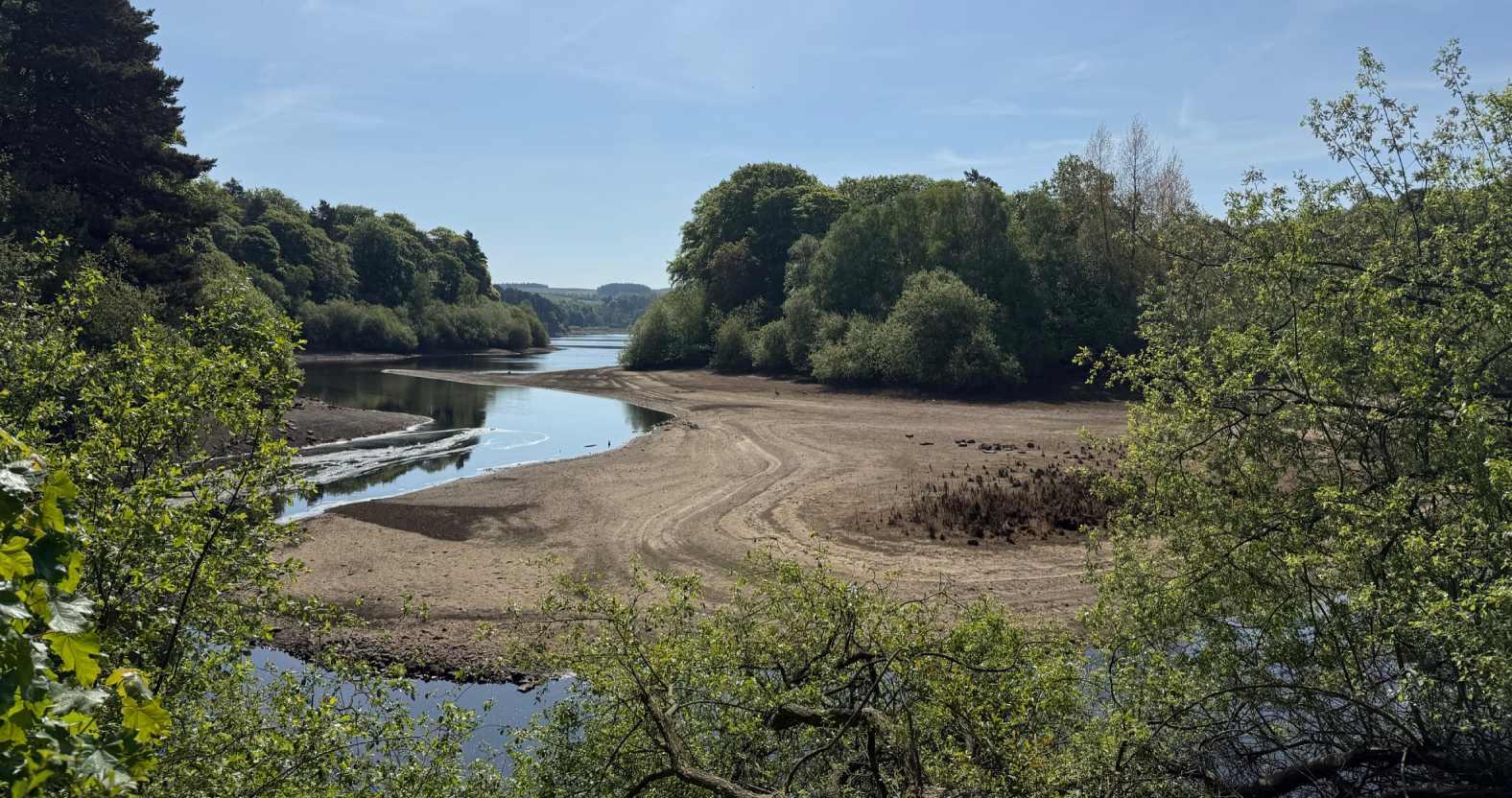
You’ve probably never heard of Agill Beck or Birky Sike, but if you live in or near Harrogate, you can thank them for supplying almost every drop of water you boil in your kettle or fill your bath with.
These are the two main watercourses that feed Roundhill reservoir, west of Masham, and that – not Fewston, Swinsty or any of the others closer to us – is where our tapwater comes from, via a big tunnel.
But visit Roundhill today and you’ll find a brown scrape in the ground that is visibly used to containing far more water than it currently does.
Like all the reservoirs owned by Yorkshire Water, Roundhill is only about 50% full. Normally it would be at 80% of capacity at this time of year.
So what’s going on?
Too little rain
According to Yorkshire Water, it’s simply a matter of dry weather.
Although winters are getting wetter – October 2023 to March 2024 was the wettest winter half-year on record, according to the Met Office’s State of the UK Climate report, published yesterday – that doesn’t mean every winter is wetter than the last. In fact, the last winter half-year was one of the driest our region has ever seen.
Every month since December 2024 has seen less than average rainfall in Yorkshire, and this spring was the region’s driest and warmest on record.
As a result, Yorkshire was hit on Friday with the UK’s first hosepipe ban in three years.
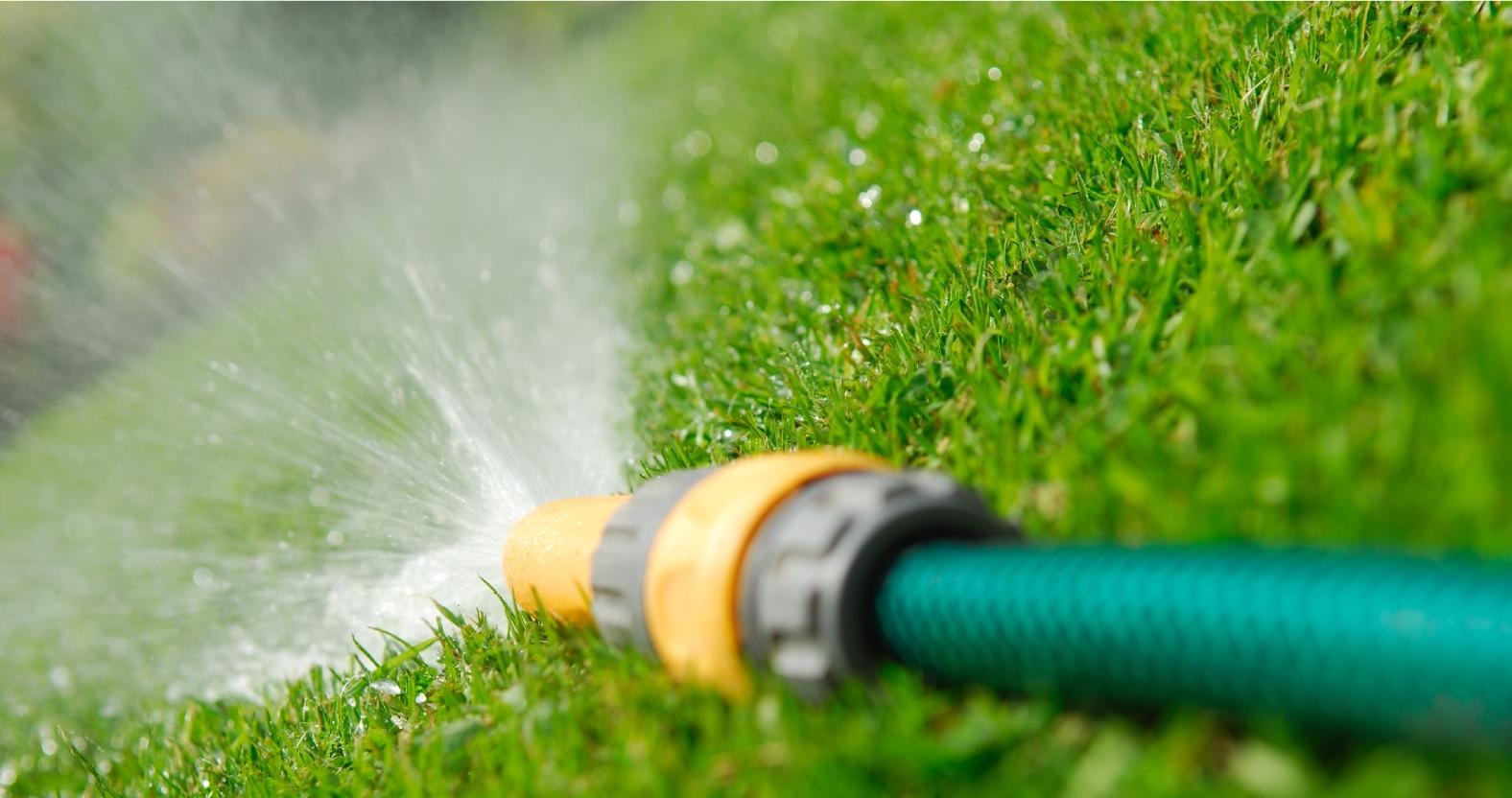
The hosepipe ban could last for months.
What about the leaks?
But while many people have simply shrugged and shelved plans to wash their car, others have been quick to blame Yorkshire Water.
A comment left on the Stray Ferret’s Facebook page was typical:
Ridiculous when there’s constant leaks all over the network!
Another said:
Yorkshire Water leaked 94.9 billion litres in 2023/24.
Incredibly, this is true. According to data published by the water regulator, Ofwat, 260 million litres were lost to leaks every day across the region in 2023/24, making Yorkshire Water's network the fourth leakiest in England and Wales.
A Yorkshire Water spokesperson told us:
We understand leaks are frustrating and we have colleagues out and about in the region 24/7 to find and fix them.
We are investing a further £38m in the next five years to continue to drive down leakage.
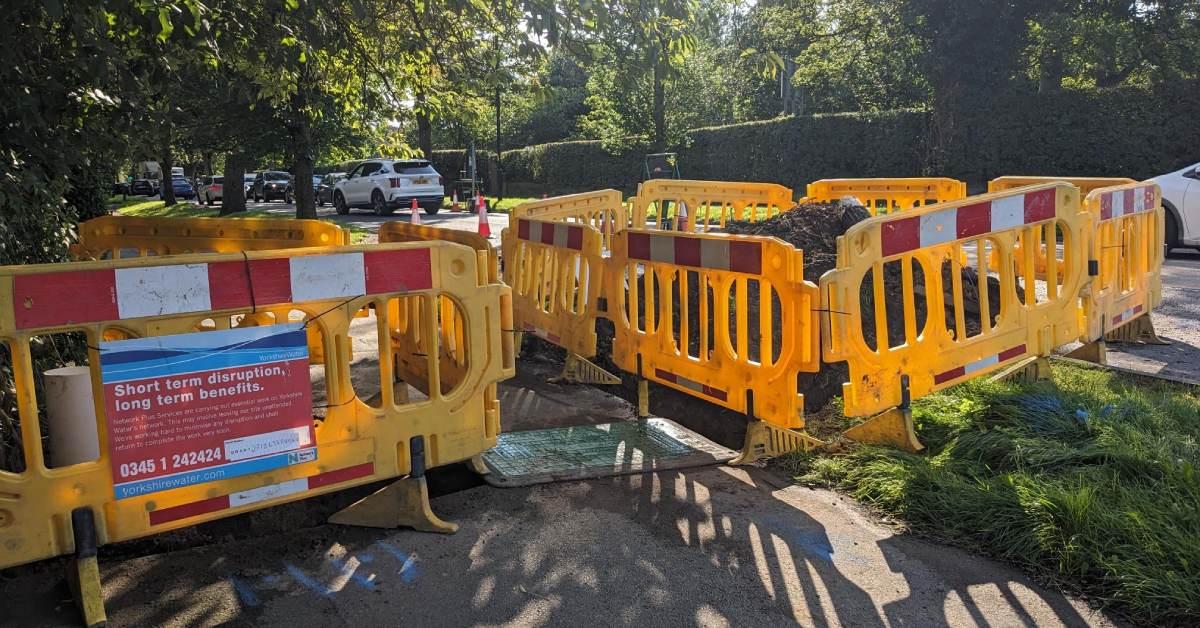
Yorkshire Water roadworks in Harrogate.
Some of the roadworks in Harrogate, Knaresborough and elsewhere in recent months have been for work to upgrade the water mains network and reduce leakage, and Ofwat data show that the amount of water lost to leaks is indeed falling.
In fact, the figure has fallen every year for the last six years and now stands at 242 million litres a day – 25% lower than it was in 2018-19 and less than half what it was 30 years ago.
Yorkshire Water’s target is a 12% reduction in the next five years.
Of course, if the dry spell were to continue, any five-year plan would be of little concern as the reservoirs would eventually be empty. So when might that happen?
Yorkshire Water’s spokesperson told us:
The actions we are taking now are designed to protect water supplies so that all our customers have the water they need when they need it.
By introducing hosepipe restrictions, we’re hoping to reduce water usage, which will help to conserve the water in our reservoirs and also help them to top back up when we do have some rain.
Demand dropped by 80-100 million litres over the weekend when compared to previous heatwaves in June.
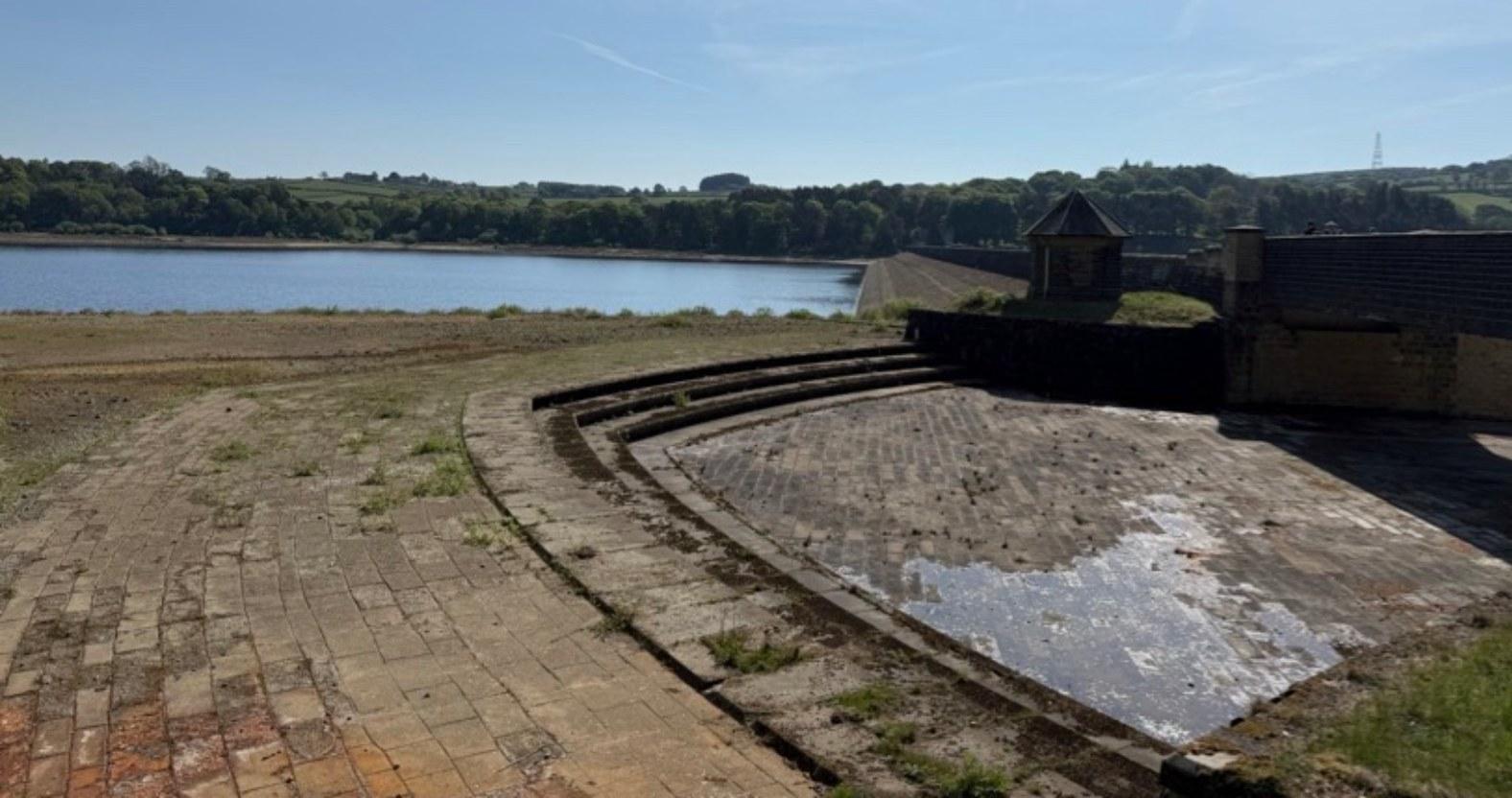
Swinsty Reservoir, July 2025.
Exemptions
So what do the restrictions mean? What can we not do, and is anyone immune?
The ban prohibits the use of a hosepipe for activities such as watering the garden, washing the car or filling a paddling pool. Anyone flouting the restriction could be fined up to £1,000.
But it turns out there are a lot of exemptions. The Yorkshire Water spokesperson told us:
Blue badge holders [i.e. disabled people with mobility problems] and those on our WaterSure tariff for medical reasons are exempt.
Business or non-household customer, you are allowed to use a hosepipe if this is directly related to the use of water for your commercial purposes, but the restrictions do apply if you’re not using a hosepipe for essential needs.

Businesses are not banned from using hosepipes for washing cars.
This means that households are affected, but businesses – even those that use huge amounts of water – will still be able to operate as normal, although water saving measures are encouraged.
The rules may be founded on sound reasoning, but they can throw up some odd-looking anomalies. For example, individuals are not allowed to wash their car with a hosepipe, but they may take it to a commercial carwash. They may fill a hot tub with a bucket, but not with a hosepipe – but hot-tub hire firms can.
Gardeners may not use hosepipes to water flowers, but watering crops on allotments is allowed. Lawn sprinklers are out, but drip-feed irrigation should be OK, and anyone who needs to water newly-laid turf or saplings may use a hosepipe.
As far as enforcement goes, it appears that Yorkshire Water is relying heavily on people’s goodwill to abide by the restrictions in what is ultimately a civil, rather than criminal, matter.
As we reported last week, North Yorkshire Police has asked people not to report hosepipe ban breaches to them. So how confident is the water company that this ban can be enforced?
The spokesperson said:
We would prefer people worked with us to reduce hosepipe usage and protect water resources further into the summer.
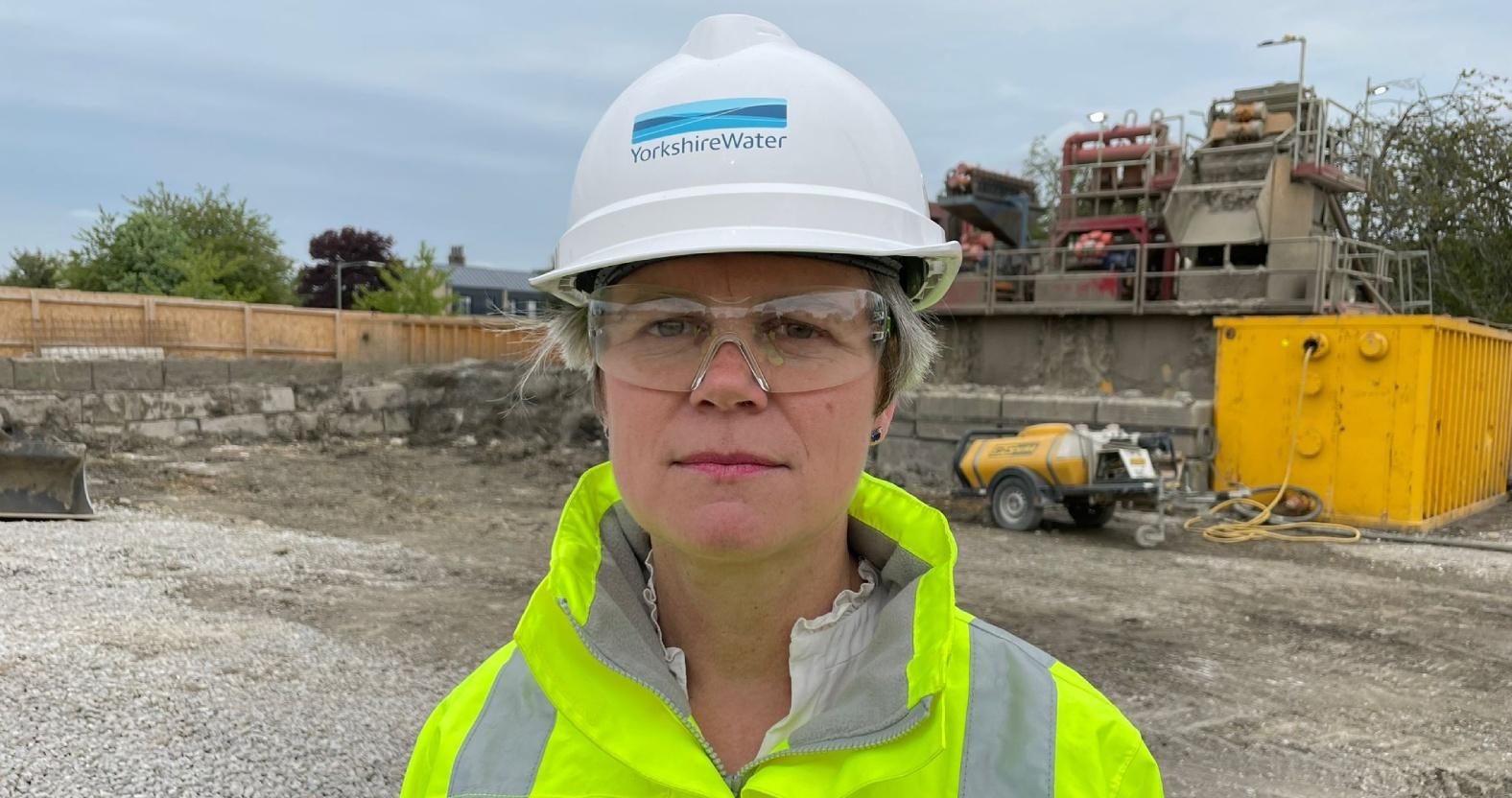
Yorkshire Water chief executive Nicola Shaw.
Looking ahead
The chief executive of Yorkshire Water, Nicola Shaw, said last week that she expected the hosepipe ban to be in place “until the winter”, when the reservoirs will have recharged. That may sound dramatic, but it’s not unprecedented. Yorkshire Water’s ban in 2022 lasted from August to December, and the one in Devon and Cornwall in the same year lasted for 13 months.
After it’s over, should we expect more hosepipe bans in the future, because of climate change and population growth, or fewer, because of fixed leaks?
The Yorkshire Water spokesperson told us:
There have now been two droughts in three years in the region. We have a water resources plan that looks many years into the future and this is reviewed regularly to ensure we have plans in place to deal with a variety of factors that impact water resources.
In other words, watch this space – and keep an eye on water levels in Agill Beck and Birky Sike.
2